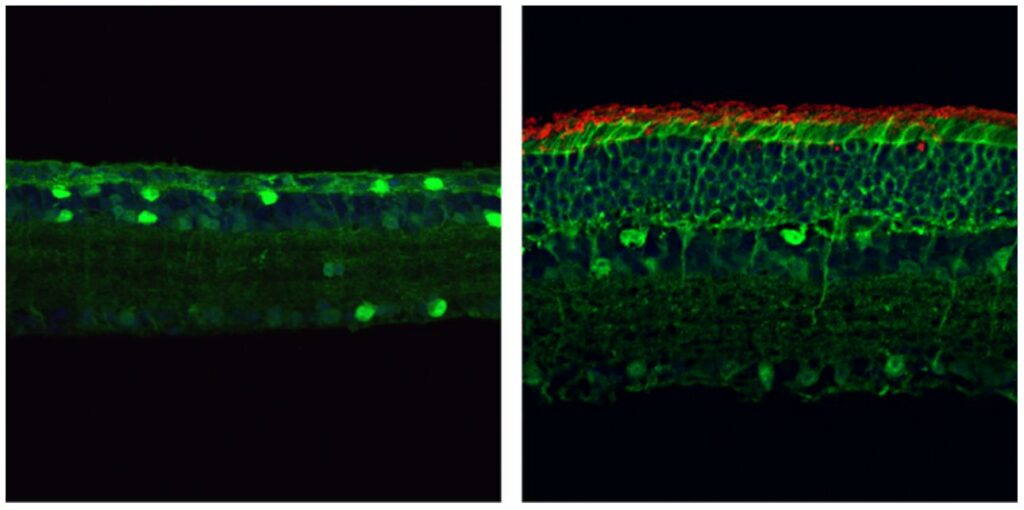A New CRISPR-based genome-editing system shows promise in restoring vision for mice with retinitis pigmentosa. Researchers aim to further develop the system for future therapeutic use in humans.
Chinese researchers have made a breakthrough in the treatment of retinitis pigmentosa, a leading cause of blindness in humans, by successfully restoring the vision of mice suffering from the disease. The research, set to be published on March 17 in the Journal of Experimental Medicine, makes use of a new form of CRISPR-based genome editing that has the potential to correct a wide variety of disease-causing genetic mutations.
Previous studies have utilized genome editing to restore the vision of mice with genetic diseases affecting the retinal pigment epithelium, a layer of non-neuronal cells that support the light-sensing photoreceptor cells. However, most forms of inherited blindness are caused by genetic defects in the neural photoreceptors themselves.
“The ability to edit the genome of neural retinal cells, particularly unhealthy or dying photoreceptors,” remarks professor Kai Yao, “would provide much more convincing evidence for the potential applications of these genome-editing tools in treating diseases such as retinitis pigmentosa.”

The loss of vision starts with the malfunctioning and death of rod cells, which detect dim light, followed by the deterioration of cone cells responsible for color vision, ultimately leading to irreversible blindness.
The researchers, led by Kai Yao of Wuhan University of Science and Technology, attempted to rescue the vision of mice with retinitis pigmentosa caused by a mutation in the gene encoding a critical enzyme called PDE6β. Yao’s team developed a new CRISPR system called PESpRY that can correct many different types of genetic mutation, regardless of where they occur within the genome.
The PESpRY system was able to efficiently correct the mutation and restore the enzyme’s activity in the retinas of mice. This prevented the death of photoreceptor cells and restored their normal electrical responses to light. The gene-edited mice retained their vision even into old age and showed typical head movements in response to visual stimuli.
Yao and his team conducted a series of behavioral experiments, demonstrating that gene-edited mice retained their visual abilities even in old age. The mice showed normal head movements in response to visual cues and were able to navigate through a visually guided water maze almost as effectively as healthy, unmodified mice.
Although much work still needs to be done to establish the safety and efficacy of the PESpRY system in humans, Yao believes the study provides substantial evidence for the applicability of this new genome-editing strategy in treating inherited retinal diseases such as retinitis pigmentosa. The disease affects an estimated 1 in 4,000 people and is caused by mutations in over 100 different genes.
Source: 10.1084/jem.20220776
Image Credit: Getty
